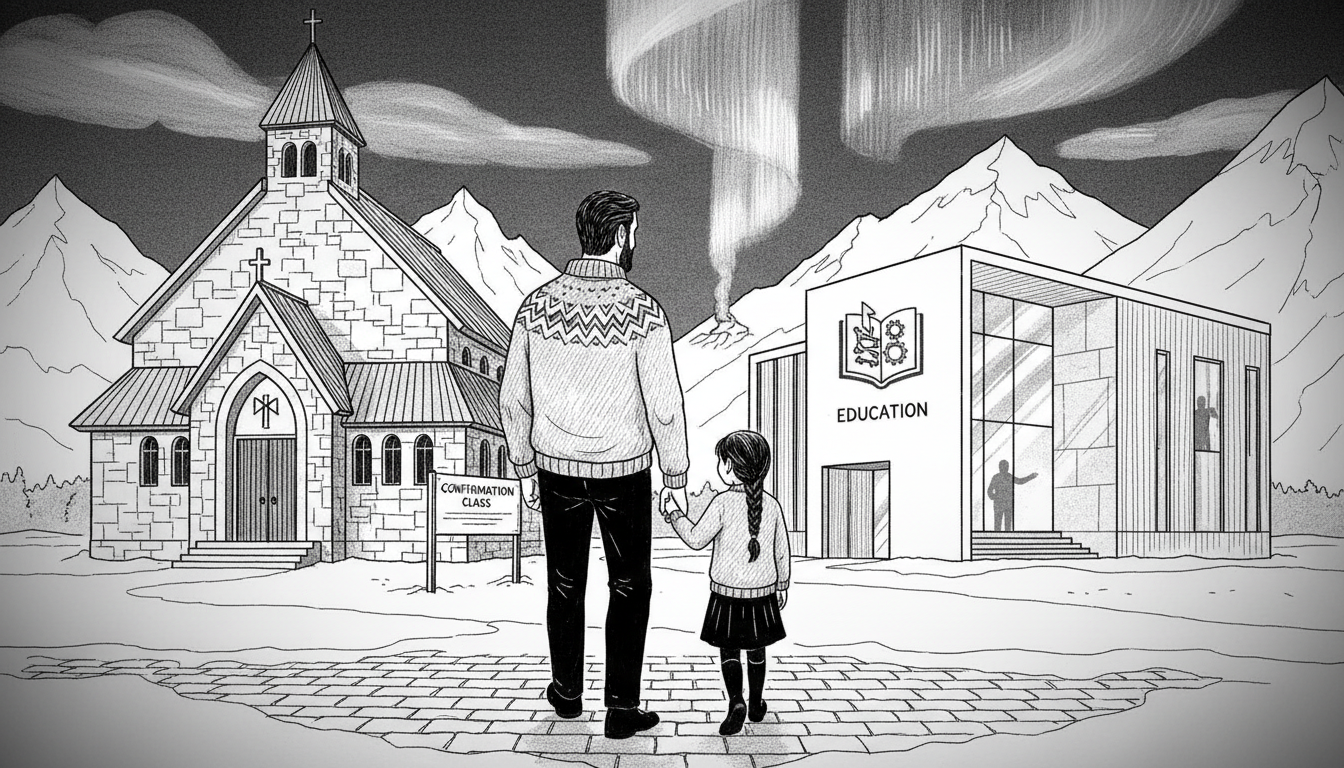An Icelandic father removed his daughter from confirmation classes after a sex education session he found inappropriate. The incident occurred at Glerárkirkja church in Akureyri, a town in northern Iceland known for its progressive community.
Ingþór Örn Valdimarsson wrote about his decision on Facebook. He said the sex educator Sigga Dögg taught the confirmation class about sexual self-discovery. The father objected to how the material was presented to teenagers.
"After sitting through an hour of an adult preaching about the importance of self-exploration on cold winter nights," Valdimarsson wrote, "they crossed the line." He specifically mentioned references to biblical figures Mary and Mary Magdalene that he found disrespectful.
Confirmation is an important religious tradition in Nordic countries. Most teenagers participate around age 14. The ceremony marks their formal acceptance into the Christian church. Many Nordic families view it as a cultural milestone regardless of their religious beliefs.
Sigga Dögg defended her approach in an interview. "Sex education affects people differently," she said. "I affect people differently. Christian values affect people differently too. There's room for all of that." She explained that her goal was to empower the children through education.
The educator said she wanted to teach teenagers that Jesus celebrated love. She believes young people should feel empowered to celebrate love too. Her methods have sparked debate about appropriate content for religious education.
The new confirmation program at Glerárkirkja includes four educational evenings. Both children and parents attend these sessions. Church officials designed the program to build trust and open communication about faith.
"It's natural that we're talking to them in confidence conversations," Sigga Dögg explained. "The church wants to be a trusted friend so you always have a confidential relationship with God. This is one element of confidence conversations in my opinion."
This incident reflects broader tensions in Nordic societies. Many families want modern, comprehensive sex education. Others prefer traditional approaches to religious instruction. The balance between these perspectives often creates community discussions.
Nordic countries typically have progressive attitudes toward sex education. Schools usually introduce the subject in early grades. However, religious settings sometimes approach the topic differently. This can lead to disagreements about appropriate content and methods.
Church confirmation remains popular across Iceland and other Nordic nations. About 60% of Icelandic teenagers participate in confirmation each year. The tradition combines religious instruction with social activities. Many participants value the community aspect as much as the religious content.
The father's decision to remove his daughter highlights how families exercise choice in religious education. Nordic countries guarantee religious freedom. Parents can opt out of programs that don't align with their values. This case shows that principle in action.
The debate continues about what constitutes appropriate sex education in religious settings. Some argue churches should adapt to modern understandings of sexuality. Others believe traditional teachings should remain unchanged. This incident in Akureyri illustrates these competing perspectives.
Local news coverage brought attention to the situation. The reporting focused on the father's concerns and the educator's response. The story has generated discussion about boundaries in religious education.
Sex education in Nordic countries typically emphasizes factual information and respect. Most programs start in elementary school and continue through teenage years. The approach is generally practical rather than moralistic. This makes the church incident notable for its different approach.
Confirmation classes in Iceland usually span several months. They include religious instruction, community service, and social activities. The sex education component varies by congregation and location. Some churches invite outside educators while others use clergy.
The Facebook post detailing the father's concerns has been widely shared. It has sparked conversations about parental rights and religious education standards. Many commenters support the father's decision while others defend the educator's methods.
This situation shows how Nordic societies navigate changing social norms. Traditional religious institutions encounter modern educational approaches. The resulting conversations help shape community standards over time. The outcome in Akureyri may influence similar discussions elsewhere.
What is confirmation in Nordic countries?
Confirmation is a religious ceremony where teenagers formally join the Christian church. Most participants are around 14 years old. The tradition remains popular across Scandinavia and Iceland.
How common is sex education in Nordic schools?
Comprehensive sex education begins in elementary school throughout Nordic countries. The approach is factual and progressive compared to many other regions. Schools focus on health, consent, and relationships.
Do most Nordic teenagers participate in confirmation?
Yes, confirmation remains widespread despite declining religious attendance. In Iceland, about 60% of teenagers participate. Many families view it as a cultural tradition rather than purely religious.

